Gentle guidance: Answers in your hands
A unique tool for self-care and deeper connection with your body. Draw a card to receive guidance that helps reduce stress, improve well-being, and discover new solutions for physical and emotional balance.
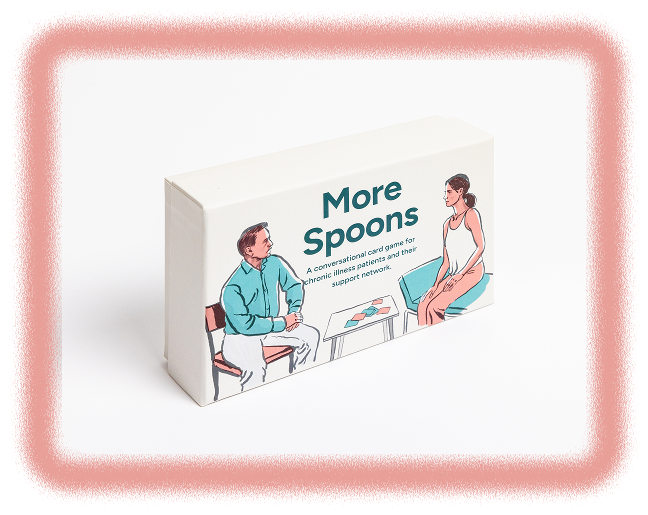
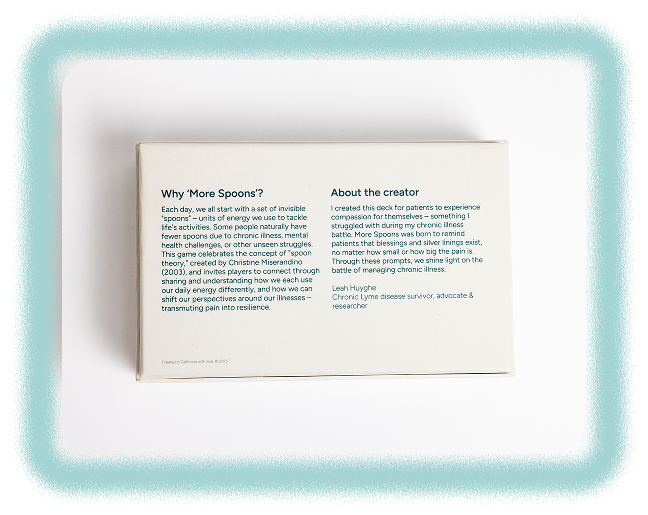
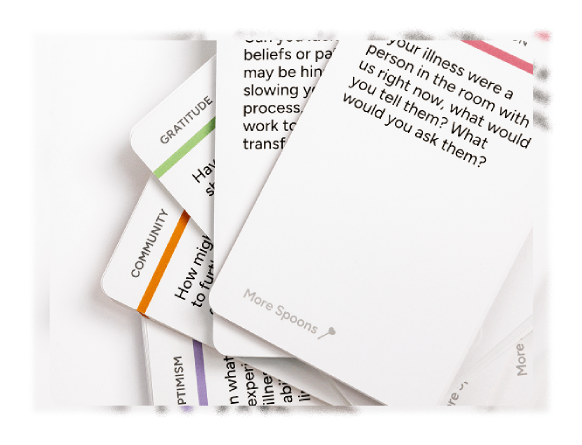
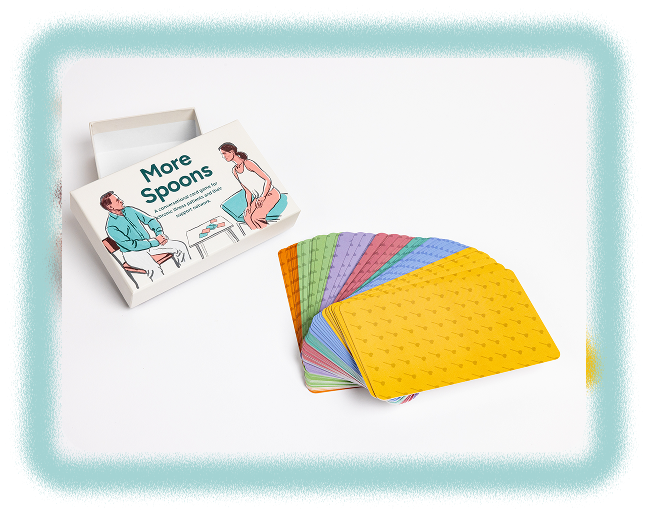
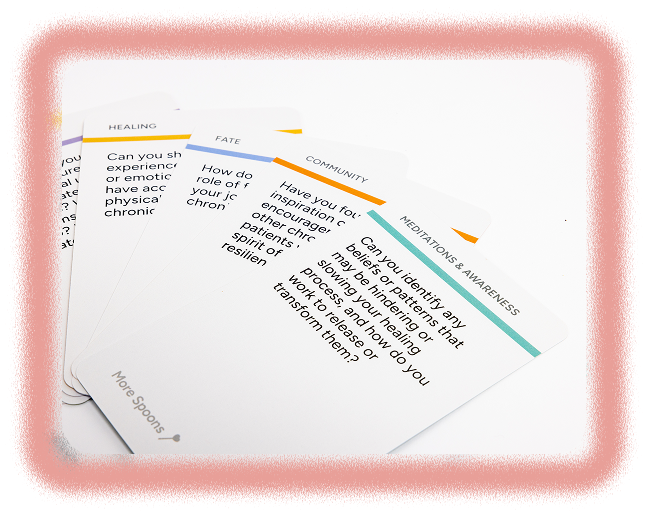
Why having these conversations matter
This isn’t just a deck of cards — it’s a tool for connection, healing, and reclaiming small moments of clarity and control. Designed with care for those navigating chronic illness, More Spoons supports emotional wellbeing in simple but powerful ways.
 Reframes your internal dialogue
Reframes your internal dialogue
Gently shifts the way you talk to yourself, from frustration to understanding.
 Validates your lived experience
Validates your lived experience
Created by someone who’s been through it, not a distant wellness brand.
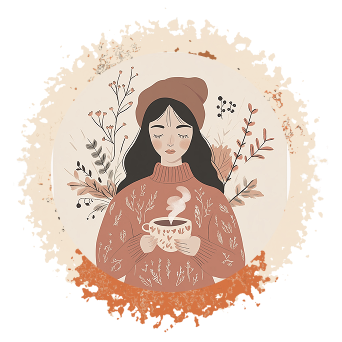 Builds moments of gratitude
Builds moments of gratitude
Even in the midst of pain or fatigue, these prompts help you notice the light.
 Sparks meaningful conversations
Sparks meaningful conversations
Use with caregivers, friends, or therapists to explore what really matters.
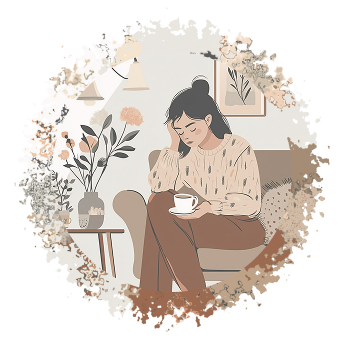 Encourages reflection without pressure
Encourages reflection without pressure
No wrong answers, no rigid system, just thoughtful, open prompts.
 Supports emotional self-care
Supports emotional self-care
When energy is limited, this deck offers just enough to guide your focus inward.
What people are saying
These reflections come from early readers, caregivers, and supporters who’ve seen the impact More Spoons can have. Whether you’re using it alone or with someone you trust, the deck creates space for meaningful, honest moments.
I've been living with fibromyalgia for 8 years, and More Spoons gave me language for conversations I didn't know how to start. My husband and I use these cards during our weekly check-ins, and for the first time, he truly understands what 'having no spoons left' means. The meditation cards have become part of my daily routine.
As a therapist who works with chronic illness patients, More Spoons has supported my sessions. Traditional therapy card decks often miss the nuanced reality of living with invisible illness. The cards provide an entry point for clients to explore their relationship with their diagnosis, process grief around their former selves, and build self-compassion. I've ordered multiple decks for my colleagues. The journaling prompts are particularly useful for homework assignments.
I’m finally having conversations with my wife that I didn’t know were possible, when I didn’t know what to ask. It helped us have honest conversations about her daily struggles without it feeling like I was interrogating her about symptoms.


